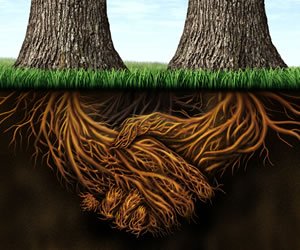
Self-Care in Medical School: A Lesson from the Heart
As a first-year medical student only a few weeks into gross anatomy, I still have ... Read more
Written by: Brent Schnipke
Published on: November 10, 2014
Getting into medical school was only the first hurdle. Learn more about how to be successful in medical school.

As a first-year medical student only a few weeks into gross anatomy, I still have ... Read more
Written by: Brent Schnipke
Published on: November 10, 2014

Reposted from here with permission. As a tour guide on interview days for my school, the most ... Read more
Written by: Allison Lyle
Published on: October 29, 2014

The Top Twenty – no, wait – Top Twenty-Two – Are You Sure It’s Twenty-Two? ... Read more
Written by: Rusty Reeves
Published on: October 15, 2014

Choosing a field of medicine is likely the most important decision a medical student will ... Read more
Written by: Mimi Knoll
Published on: October 13, 2014

Studying medicine at English-taught medical schools overseas could provide good opportunities for some students.
Written by: Moshe Cohen
Published on: September 29, 2014

When medicine burns you out, find strength in remembering why you're there.
Written by: Jarna Shah
Published on: September 24, 2014

A look at a day in the life of a third year student and what the clinical rotations experience entails.
Written by: Alex Cole
Published on: August 20, 2014

A look at a day in the life of a third year student and what the clinical rotations experience entails.
Written by: Alex Cole
Published on: August 18, 2014

Don't be surprised if your medical school experience changes the idea of the future you had envisioned for yourself.
Written by: Farah Kahn
Published on: July 30, 2014

Residents, don't forget where you came from when you're not a student anymore.
Written by: Lindsay Heuser
Published on: June 25, 2014

Taking personal leave from medical school can help you recover from tough situations and succeed in your future career.
Written by: MedSchoolQueen
Published on: June 20, 2014

Many students avoid social media because of its risks without considering the benefits it can provide when used well.
Written by: Sam Scott
Published on: May 30, 2014

Working to manage stressors can prevent medical school stress from taking a long-term toll on your well-being.
Written by: Megan Riddle
Published on: May 27, 2014

Clinical training is filled with hidden lessons that aren't found in any textbook.
Written by: Megan Riddle
Published on: May 19, 2014

Medical school may mean you're no longer at the top of your class, but that doesn't mean you won't be successful.
Written by: Megan Riddle
Published on: April 28, 2014

Confidential help is available for the upwards of 1 in 4 medical students who meet the criteria for depression.
Written by: Megan Riddle
Published on: April 9, 2014

Learning in medical school is different than learning in undergrad. Here are some tips to help you make the transition.
Written by: Sean Alemi, MD
Published on: March 27, 2014

Some advice to help you be both a professional student and the best parent you can be.
Written by: Jasmine Johnson
Published on: March 18, 2014

Advice from a fourth year medical student on how to live and study well in medical school.
Written by: Megan Riddle
Published on: February 2, 2014